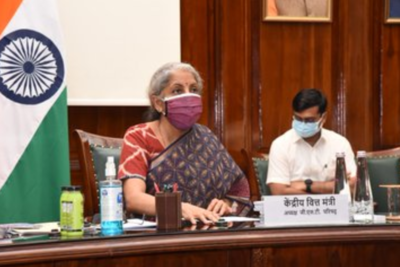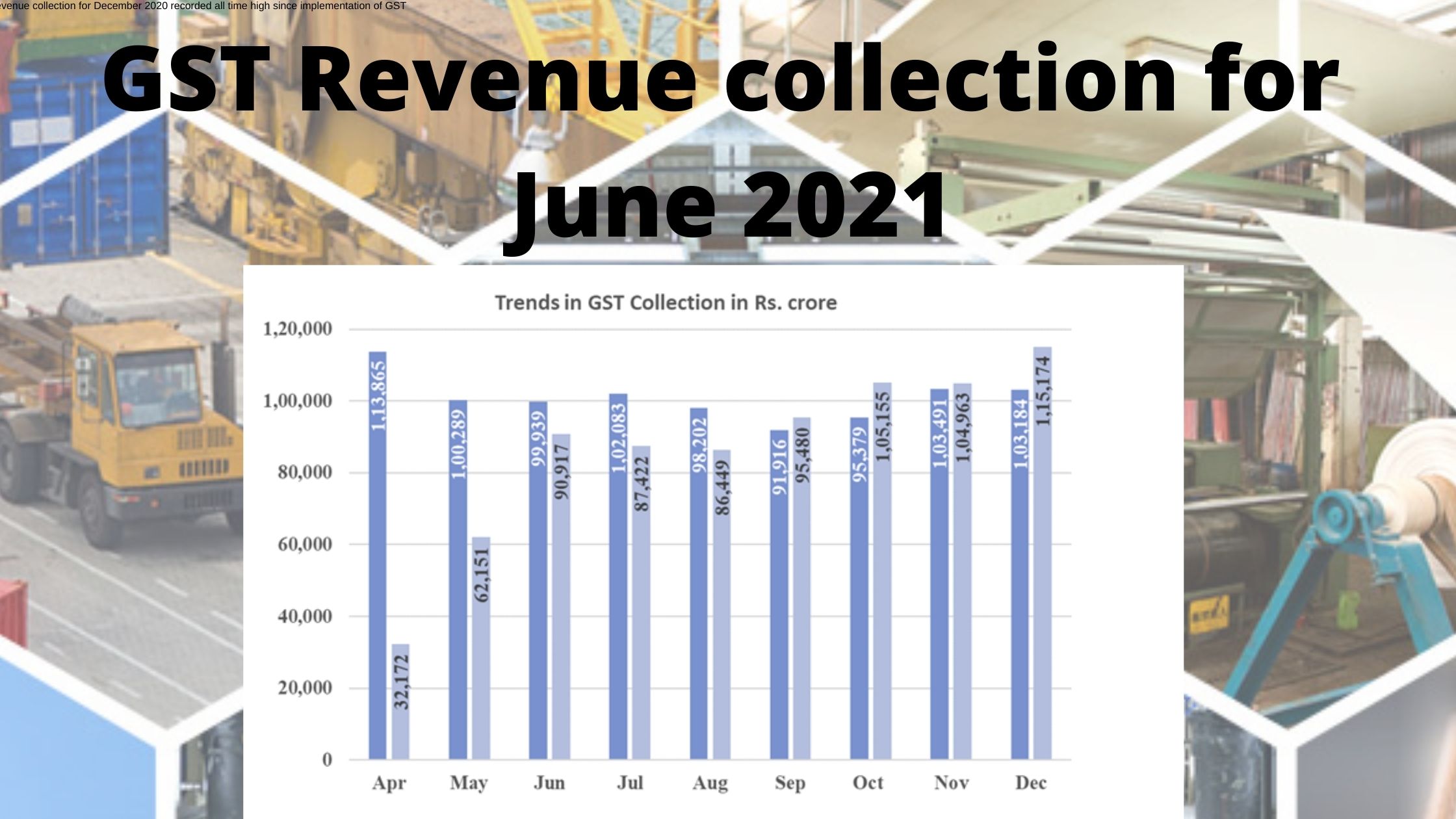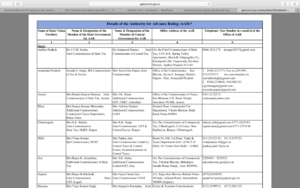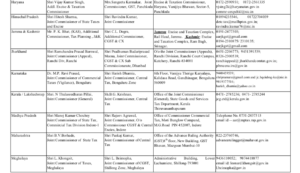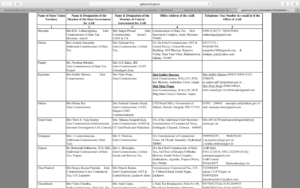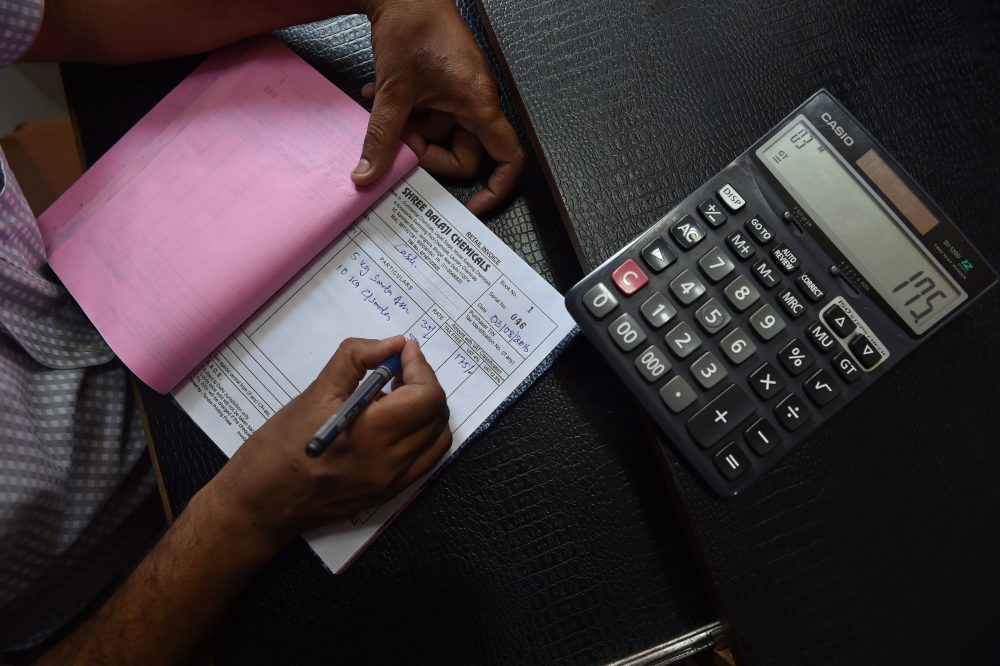The 50th meeting of the Goods and Services Tax (GST) Council was held on July 11, 2023, in New Delhi, with Union Finance & Corporate Affairs Minister Smt Nirmala Sitharaman leading the proceedings. This landmark meeting marked a significant milestone in the journey of the GST Council, as it deliberated on a range of important recommendations. From changes in GST rates to measures aimed at facilitating trade and streamlining compliances, the 50th GST Council meeting addressed key issues impacting the Indian economy. In this article, we will delve into the noteworthy recommendations made during this meeting and shed light on their implications.
Recommendations on Changes in GST Rates
The GST Council put forth several recommendations pertaining to changes in GST tax rates on goods and services. These recommendations aimed to simplify the taxation system, provide exemptions where necessary, and promote certain industries. Let’s explore the key changes in GST rates discussed during the meeting:
- Changes in GST Rates of Goods: To promote ease of doing business and encourage specific sectors, the Council recommended the following changes in GST rates for certain goods:
- Reduced Rates for Snack Pellets and Imitation Zari Thread: The Council decided to reduce the GST rate on uncooked/unfried snack pellets from 18% to 5%. This move aims to make these products more affordable for consumers. Additionally, the GST rate on imitation zari thread or yarn, known by any name in trade parlance, has been lowered from 12% to 5%. This reduction is expected to benefit the textile industry.
- Exemptions for Medicines and Food for Special Medical Purposes: In a significant step towards supporting the treatment of rare diseases listed under the National Policy for Rare Diseases, 2021, the Council announced exemptions on IGST for medicines and Food for Special Medical Purposes (FSMP) when imported for personal use. This exemption also extends to FSMP imported by Centres of Excellence for Rare Diseases or any person or institution recommended by these centers. Moreover, the Council granted IGST exemption on Dinutuximab (Quarziba) medicine when imported for personal use, aiming to alleviate the financial burden on patients.
- Promoting Environmental Protection and Utilization: In a bid to encourage better utilization of LD slag and protect the environment, the GST rate on LD slag has been reduced from 18% to 5%. The Council recognizes the importance of promoting sustainable practices and aims to incentivize the use of LD slag in various industries. Additionally, the GST rate on fish soluble paste has been reduced from 18% to 5%, aligning it with the GST rates of other similar products.
- Changes in GST Rates of Services: Apart from changes in GST rates for goods, the Council also recommended certain changes in the GST rates of services. These changes aim to address industry-specific concerns and streamline tax obligations. Here are the key service-related changes discussed during the 50th GST Council meeting:
- GST Rate Reduction for Food Served in Cinema Halls: The Council decided to reduce the GST rate on foods served in cinema halls from 18% to 5%. This reduction follows the clarification that the supply of food and beverages in cinema halls is taxable as a restaurant service, as long as it is supplied by way of or as part of a service and is supplied independently of the cinema exhibition service. However, in cases where the sale of cinema tickets and the supply of food and beverages are bundled together as a composite supply, the entire supply will attract GST at the rate applicable to the service of exhibition of cinema, which is the principal supply.
- Taxation of Online Gaming and Casinos: In a significant development, the Council decided to levy a 28% GST rate on the full value of online gaming, casinos, and horse racing. This decision eliminates the distinction between games of skill and chance in the case of online gaming. The tax will be applicable on the face value of the chips purchased in the case of casinos, the full value of the bets placed with bookmakers/totalisators in the case of horse racing, and the full value of the bets placed in the case of online gaming. These changes will come into effect after an amendment in the GST law.
Measures for Facilitating Trade and Streamlining Compliances
Apart from changes in GST rates, the 50th GST Council meeting focused on measures aimed at facilitating trade and streamlining compliances. These measures are aimed at making the GST system more efficient and business-friendly. Let’s explore the key recommendations made in this regard:
- Utility Vehicle Classification: To bring clarity and consistency in the classification of utility vehicles, the Council decided to amend the entry 52B in the compensation cess notification. As per the amendment, all utility vehicles meeting the parameters of Length exceeding 4000 mm, Engine capacity exceeding 1500 cc, and having Ground Clearance of 170 mm & above will be included under the compensation cess notification. Additionally, the Council provided an explanation clarifying that ‘Ground clearance’ means ground clearance in an unladen condition.
- Inclusion of Banks for IGST Exemption on Gold, Silver, and Platinum Imports: The Council recommended the inclusion of RBL Bank and ICBC Bank in the list of specified banks for which IGST exemption is available on imports of gold, silver, or platinum. This move aims to expand the list of eligible banks/entities and streamline the IGST exemption process.
- Clarifications on Compensation Cess and Retail Sale Price: To address concerns related to the levy of Compensation Cess on products where it is not legally required to declare the retail sale price, the Council decided to notify the earlier ad valorem rate that was applicable on March 31, 2023, for the levy of Compensation Cess on products such as pan masala and tobacco. This step aims to ensure compliance with the Compensation Cess regulations.
- GST Appellate Tribunal and Compliance Relaxations: The Council recommended the rules governing the appointment and conditions of the President and Members of the proposed GST Appellate Tribunal. These recommendations aim to enable the smooth constitution and functioning of the GST Appellate Tribunal. Furthermore, the Council recommended the continuation of the relaxations provided in the financial year 2021-22 for various tables of FORM GSTR-9 and FORM GSTR-9C in the financial year 2022-23. Additionally, to ease the compliance burden on smaller taxpayers, the exemption from filing an annual return (in FORM GSTR-9/9A) for taxpayers with an aggregate annual turnover of up to two crore rupees will be continued for the financial year 2022-23 as well.
- TCS Liability Clarification for E-commerce Operators: The Council decided to issue a circular to provide clarification regarding Tax Collected at Source (TCS) liability under Section 52 of the CGST Act, 2017, in cases where multiple e-commerce operators (ECOs) are involved in a single transaction of supply of goods or services. This clarification aims to address any ambiguity and ensure proper compliance with TCS obligations.

